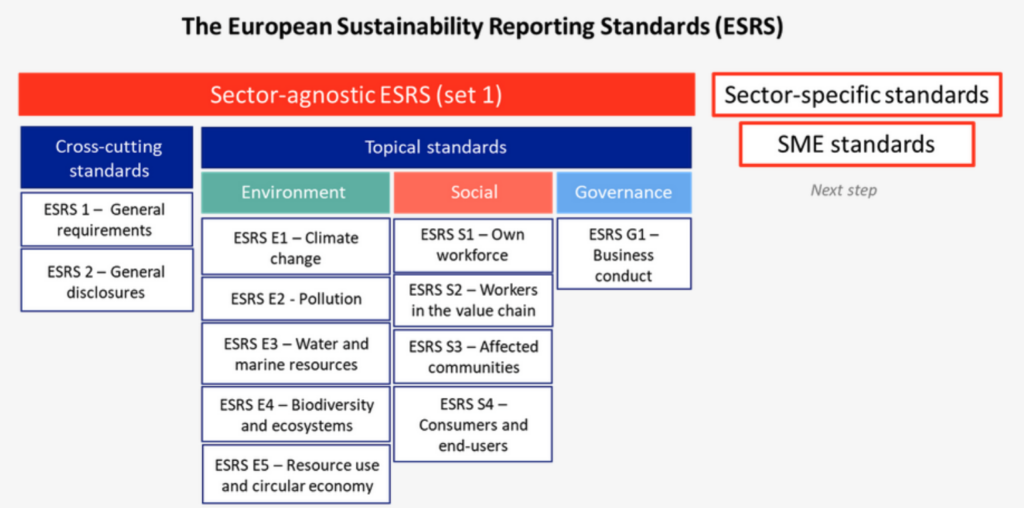A term borrowed from finance
In accounting, materiality represents a framework to define whether an expense should be taken into account or not. It is therefore considered that accounting errors below this threshold, verified as part of the financial audit, have no significant impact on the company.
This notion has been transposed into non-financial reporting to define the ESG criteria which have an impact on the issuing company. To define them, the entity therefore produces a materiality matrix based on the analysis of its risks and opportunities.
Towards new European requirements
With the CSRD, the analysis will be established according to the principle of double materiality.
Up to now, companies created a one-way matrix (proving how certain criteria impact them). As of 2024, they will also have to define the quantitative and qualitative non-financial criteria of their own impact on the environment and stakeholders, according to European Sustainability Reporting Standards (ESRS).

To put it simply, the two types of materialities in the context of the CSRD are:
An approach anchored in tomorrow’s societies
The subject is therefore no longer solely economic. It is no longer simply a question of proving the good financial health of the company in the near future, as evidenced by the ambitious objectives of the CSRD. The various stakeholders now demand that the company concretely demonstrates its efforts and actions to limit its environmental and societal impacts over the long term.
In this sense, double materiality responds to a global demand from investors, suppliers, workers, customers and civil society in general, who are more concerned about the virtuous approaches of companies and their involvement in the world of tomorrow.
Professionals to guide you
But what about its implementation? How should a company comply with this new requirement and enhance its sustainable actions?
Whether you wish to train your teams, advise them or implement action plans, consulting firms, agencies and software publishers are here to help. At Pomelo-Paradigm, we can support you in carrying out your sustainability reports and direct you to the right professionals, thanks to our ecosystem of expert partners. Contact us to get ready now!